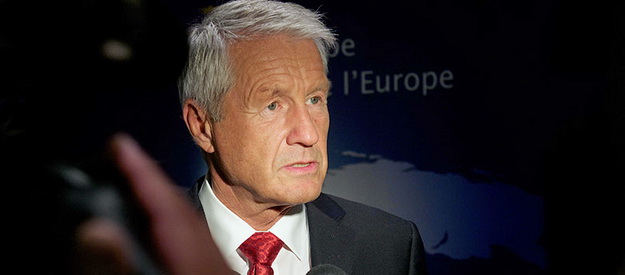After the Finnish company Wärtsilä refused to sell generators to the “Zaliv” ship-building factory in Kerch, occupied Crimea, they were replaced by generators produced by the German company MAN, one of Russia’s largest outlets RBC reported on 18 January. RBC cites its source with access to the materials of Russia’s Ministry of Transport, which is commissioning the construction of the emergency and rescue vessel worth RUB 2.8 bn ($49.3 mn) at Zaliv, and a partner of several Russian shipbuilding companies. According to the latter, it was the Finnish company’s refusal which led to the purchase of MAN’s equipment.
A representative of MAN Diesel & Turbo, a department of MAN which produces marine equipment, told the outlet that the company is not aware of the use of its generators on the “Zaliv” shipyard. “We don’t participate and had not participated in any current or recent projects with the “Zaliv” factory,” he said, adding that MAN hasn’t supplied generators to “Zaliv” over the last 10 years.
The representative declared that the existing sanctions prohibit supplying generators to Crimean companies, or using them in Crimea, and that MAN follows these prescriptions. However, he suggested that “Zaliv” could be using equipment which was produced for other ships, which “MAN could not control or know about.”
Commenting to RBC, a representative of the German Federal Ministry of Economic Affairs and Energy said that the government does not comment on the export questions of private companies, noting that it is the responsibility of the companies to comply with the EU sanctions regime.
The emergency rescue ship for which the generator was ordered was commissioned by Russia’s Ministry of Transport in 2015 from the Gorky factory in Zelenodol. According to the reports of the specialized outlets Korabel and Port News, this ship is being built at the Kerch factory “Zaliv.”
RBC reported on 15 January 2018 that Wärtsilä turned down the proposal to supply the generators needed for the ship after ’thoroughly investigating” the issue and concluding that it “would not correspond to the existing sanctions regime,” but added that it is ready to work further with Russia in the limits of the existing rules.
In 2015, the Russian newspaper Vedmosti reported that the German technogiant Siemens has the intention to supply generators for power stations in Crimea, in violation of EU sanctions. In June 2017, four Siemens turbines for two power stations in Simferopol and Sevastopol were indeed delivered to occupied Crimea. Siemens representatives declared that they were misled by their Russian partners and delivered the turbines to occupied Crimea instead of the Taman peninsula as agreed, and had sued them in the Moscow Arbitration Court. However, on 21 December 2017, the court ruled that it sees no proof Siemens was fooled in making the contract. An open-source investigation into the scandal revealed that it is highly unlikely Siemens wasn’t aware that its turbines would go to Crimea. As a result of the scandal, EU sanctions were extended to several more high-ranking Russian officials, but Siemens itself did not suffer.
However, in January 2018, a German company was fined for violating the sanctions regime with Russia by illegally exporting dual-purpose equipment.
Also, recently, the Ukrainian outlet Black Sea News discovered a scheme where German ships delivered Norwegian ilmenite to occupied Crimea in breach of EU sanctions.
A study by the Kiel Center for World Economy has found that Germany bears the main brunt of EU sanctions against Russia.
Read also:
- Germany, Norway deliver ilmenite ore to occupied Crimea in sanctions breach
- Germany bears main brunt of EU sanctions against Russia
- Recent US survey shows American public in favor of stronger sanctions on Russia
- Siemens’ Crimea sanctions break – a case of criminal negligence | #SiemensGate
- Siemens fails to convince Russian court that it was duped in Crimea sanctions scandal
- German Siemens continues to collaborate with Russian companies
- Siemens CEO’s cheap excuses for Crimea sanctions breach VS the facts
- How Siemens chose to ignore the obvious. An investigation into the Crimean sanctions break





